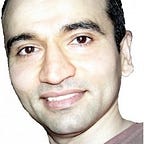The Power of Myth
This book is based on the 1988 PBS documentary originally broadcast as six one-hour conversations between mythologist Joseph Campbell and journalist Bill Moyers.
Joseph Campbell is a preeminent scholar, writer, and teacher. He says
Mythology is a song, a song of universe, a song of imagination
History has been shaped by the power of myths like other stories in the sacred scriptures exploring universal mysteries around life’s fundamental quest. Myths have been a part of our life for a long time. As kids, we grew up learning various kinds of myths.
Author also states that we are killing this song and he explains it with this beautiful story of a boy.
This boy was able to catch a bird from the forest
This bird had a beautiful song.
The boy asked his father to bring food for the bird.
But the father did not want to feed the mere bird.
So he killed the bird.
But when he killed the bird he killed the song,
and when he killed the song,
He killed himself and dropped dead.
In destroying nature as we have done we kill the song and in killing the song we kill ourselves
The myth is a public dream and a dream is a private myth
That way the myth is a social dream. Myths and dreams come from the same place.
Myths put you beyond the concepts of reality and connects with the mastery like what Shakespeare said “Hold a mirror up to nature”
On Metaphors
A metaphor is an image that suggests something else.
The metaphor is the mask of God through which eternity is to be experienced
The symbols don’t render the experience, they suggest it. Like poetry is a metaphorical language. The person who has this extraordinary experience has to project it in some way, the best way, so that others can grasp it.
It’s like Goethe said:
Everything’s a metaphor.
The vehicle of the metaphor may have literal existence. All things are transitory. All forms are expressions of the formless.
As the eye cannot see itself directly, the mind can never understand itself literally.
Goethe, wrote in Faust
All that doth pass away
Is but a symbol
So What in life doesn’t pass away and isn’t transitory?
The indescribable reveals itself — through the transitory symbols of life
On Religion, Death & Fate
Religions turns poetry in to prose
Jung said that religion is a defense against the experience of God.
You have to break past the image of God. The eyes should be open to something of more cosmic
Desire is the bait, death is the hook
We must constantly die one way or another to the selfhood already achieved. A baby bird knows when to fly, these little things don’t make mistakes.
Fate is an important idea in Nietzsche, of Amor fati, the “love of your fate,” which is in fact your life. As Nietzsche says,
If you say no to a single factor in your life, you have unraveled the whole thing
“This is what I need” you say that internally to yourself for whatever happens externally.
The demon that you can swallow gives you its power, and the greater life’s pain, the greater life’s reply
On Soul, Love, Pain & God
Carl Jung says the soul cannot exist in peace, until it has found its other and the other is always you. How romantic is that?
The stronger the love the more the pain, but love bears all things,
Love itself is pain, you might say the pain of being truly alive.
The mystery cannot be reduced to a set of concepts and ideas.
In mythological terms, the center of the world is the hub of the universe. The central point of the world is a point where stillness and movement are together, movement is time and stillness is eternity.
William Blake said
Eternity is in love with the productions of time?
This way the eternity pours itself into the world
On Dreams
Schopenhauer suggests that just as your dreams are composed by an aspect of yourself of which your consciousness is unaware, so, too, your whole life is composed by the will within you. And just as people whom you will have met apparently by chance became leading agents in the structuring of your life, so, too, will you have served unknowingly as an agent, giving meaning to the lives of others. The whole thing gears together like one big symphony… and Schopenhauer concludes that it is as though our lives were the features of the one great dream of a single dreamer in which all the dream characters dream too; so that everything links to everything else, moved by the one will to life which is the universal will in nature
Mythology as the homeland of the muses, the inspirers of art, the inspirers of poetry. To see life as a poem and yourself participating in a poem is what the myth does for you
